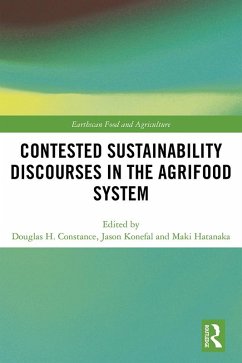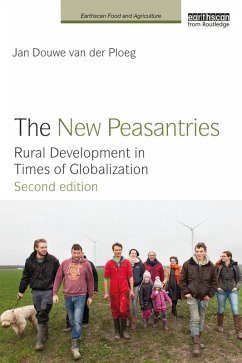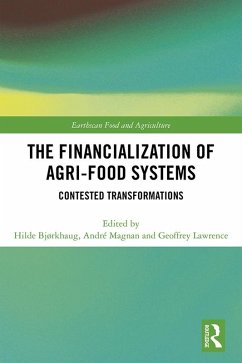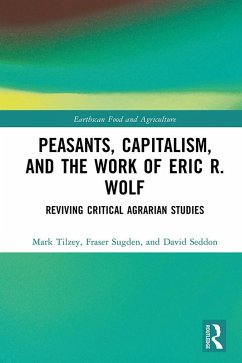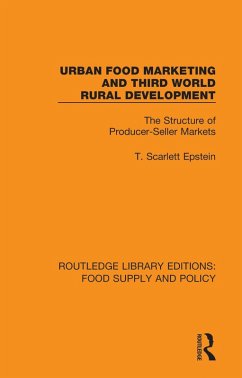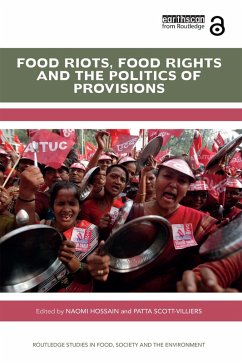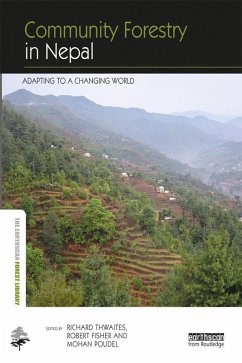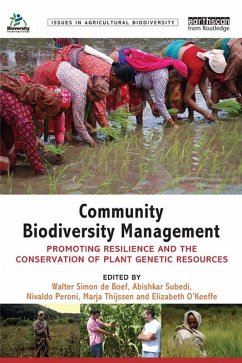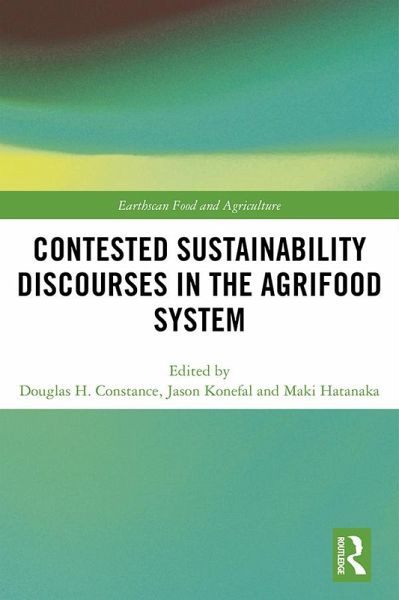
Contested Sustainability Discourses in the Agrifood System (eBook, ePUB)
Versandkostenfrei!
Sofort per Download lieferbar
43,95 €
inkl. MwSt.
Weitere Ausgaben:

PAYBACK Punkte
22 °P sammeln!
The industrial agrifood system is in crisis regarding its negative ecological, economic, and social externalities: it is unsustainable on all dimensions. This book documents and engages competing visions and contested discourses of agrifood sustainability.Using an incremental/reformist to transformation/radical continuum framework for alternative agrifood movements, this book identifies tensions between competing discourses that stress food sovereignty, social justice, and fair trade and those that emphasize food security, efficiency and free trade. In particular, it highlights the role that g...
The industrial agrifood system is in crisis regarding its negative ecological, economic, and social externalities: it is unsustainable on all dimensions. This book documents and engages competing visions and contested discourses of agrifood sustainability.
Using an incremental/reformist to transformation/radical continuum framework for alternative agrifood movements, this book identifies tensions between competing discourses that stress food sovereignty, social justice, and fair trade and those that emphasize food security, efficiency and free trade. In particular, it highlights the role that governance processes play in sustainability transitions and the ways that power and politics affect sustainability visions and discourses.
The book includes chapters that review sustainability discourses at the macro and meso levels, as well as case studies from Africa, Australia, Canada, Europe, South America and the USA.
Using an incremental/reformist to transformation/radical continuum framework for alternative agrifood movements, this book identifies tensions between competing discourses that stress food sovereignty, social justice, and fair trade and those that emphasize food security, efficiency and free trade. In particular, it highlights the role that governance processes play in sustainability transitions and the ways that power and politics affect sustainability visions and discourses.
The book includes chapters that review sustainability discourses at the macro and meso levels, as well as case studies from Africa, Australia, Canada, Europe, South America and the USA.
Dieser Download kann aus rechtlichen Gründen nur mit Rechnungsadresse in A, B, BG, CY, CZ, D, DK, EW, E, FIN, F, GR, HR, H, IRL, I, LT, L, LR, M, NL, PL, P, R, S, SLO, SK ausgeliefert werden.




